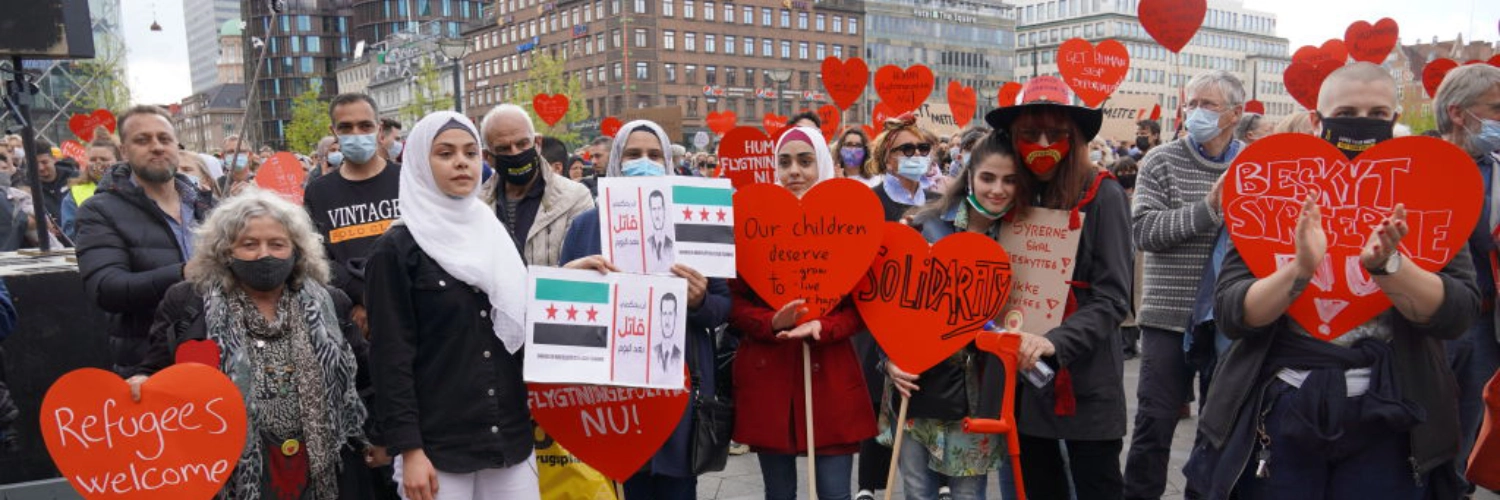
Syrian Women on the Run
Denmark’s threats to send refugees back to Syria has disproportionately affected women – including some who fled abusive partners
Denmark prides itself on being a champion of gender equality, and has recently won international praise for automatically granting refugee status to female Afghan asylum seekers due to the Taliban’s persecution of women and girls. But other women seeking asylum in Denmark may not recognise this description of the country they have tried to make their home.
While Afghan women and girls are protected, the country is simultaneously running an asylum system that uniquely disadvantages Syrian women, leaving them at greater risk of detention and deportation than their male counterparts. Some of these women are survivors of domestic violence, both in Syria and in Denmark, and must navigate a hostile system designed by and for men to win back the right to stay in Denmark.
When the Danish government categorised the area around Damascus as “safe for return” in 2019, hundreds of asylum seekers lost their Danish residence permits. Many of them were women and older people, as they made up the majority of people on the weakest form of refugee protection offered by the government. This is because men of fighting age risk military conscription back in Syria, so are automatically given full protection under the Refugee Convention.
Women are more likely to be considered to face the threat of “generalised violence”, even if they are personally at risk from ex-partners or family members. Thus they are more likely to have their permits withdrawn, despite representing a uniquely vulnerable group. Denmark does not have diplomatic relations with Syria, so people who lose their permits are sent to notorious deportation camps, where they are separated from their community and denied the opportunity to work or study.
METHODS
While reporting on the impact of the 2019 decision we noticed a pattern of women who had survived domestic violence receiving notifications that their residence permits were being cancelled. One lost her permit because her abusive husband threw her out when she reached Denmark and her status in the country was tied to his.
We started to follow their stories and obtained data from the Danish immigration service and Refugee Appeals Board on Syrian asylum seekers and gender. We then spoke to experts, lawyers and researchers about the context: how asylum systems are often designed by and for men, and are blind to the specific dangers women asylum seekers face—including domestic violence, sexual abuse, and forced marriage.
STORYLINES
We found that 64 per cent of Syrians given the weakest form of protection in Denmark are women, putting them at significantly greater risk of return. Since 2019, more than 1,000 Syrian refugees have had their permits reassessed and more than 150 have lost final appeals, of whom more than 70 are women.
In the case of Syrian refugees, Denmark has “gone so far with their anti-refugee and anti-migrant policies that they’ve ended up undermining their own commitment to gender equality,” says Catherine Woollard, director of the European Council on Refugees and Exiles.
Faten* was terrified when she heard about the 2019 decision. Her ex-husband back in Syria had been tracking her and her children. He began sending them threatening videos. In one, he is dressed in military fatigues holding a weapon. “You are coming back from Denmark,” he says. “I am in Syria, waiting for you.”
*Names have been changed to protect identities.

